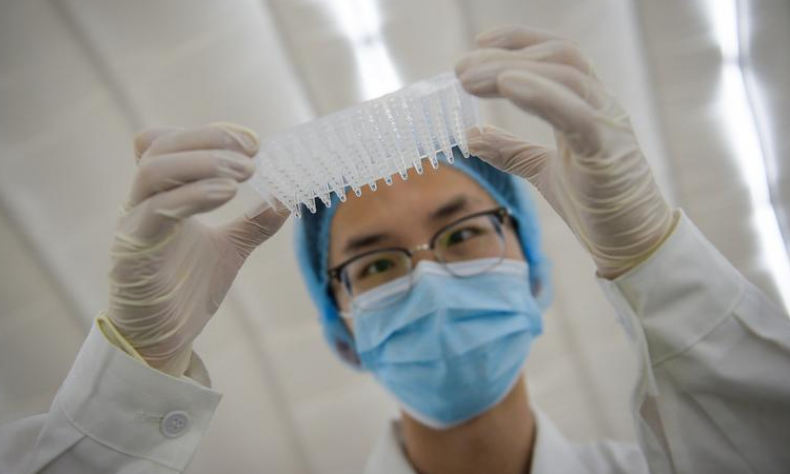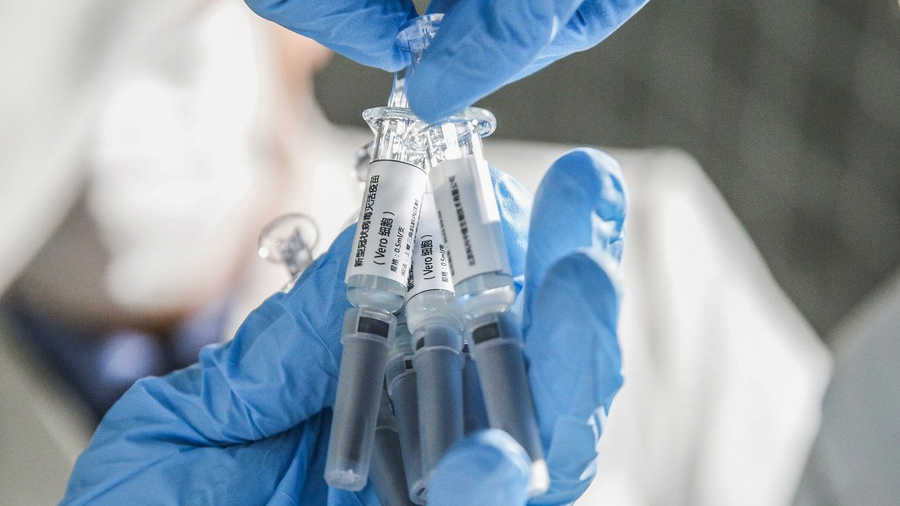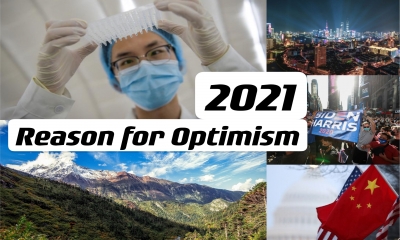Vaccine Nationalism is “Self-Defeating” and Will Only Prolong Our COVID Hell

China’s decision to join COVAX is a significant move in the global fight against COVID-19. But with the initiative still yet to gain the support of the US and Russia, and countries still unilaterally ordering vaccines in their millions, vaccine nationalism continues to threaten the program’s work.
Hopes of discovering a universal vaccine for COVID-19 took a significant step forward as China became the latest country to sign up to COVAX, the world’s largest platform for research, development and manufacturing of a coronavirus cure.
On October 9 China’s Ministry of Foreign Affairs confirmed China would participate in the World Health Organization (WHO) and Gavi – the Global Alliance for Vaccines and Immunisation – led programme after months of negotiations, making China the largest economy to join the scheme and boosting hopes that those most in need of a vaccine will face fewer barriers in precuring it.
How did the move transpire?
China has long promised any vaccine it develops will be made available for the global good, with Chinese President Xi Jinping pledging back in May to provide US$2 billion over the next two years to support the global response to COVID-19. But this is the first time the country has committed to such an internationally-endorsed scheme, and their decision comes at a crucial time in the vaccine process.
According to the New York Times there are now eleven potential vaccines in phase three testing, with another five approved for limited or early use, bringing with them increasing optimism that we may soon have an answer to a virus that has taken the lives of over one million people and infected over 41 million others.
With four of the latter-stage trials being conducted by Chinese companies, COVAX will now be able to call upon their expertise, experience and funding as the initiative proceeds with its target of raising $2 billion by the end of the year, and equably distributing 2 billion doses of any successful vaccine a year later.
“This is fantastic news, which gives even more momentum to our efforts to ensure global, equitable access to COVID-19 vaccines,” Seth Berkley, Gavi CEO said in response to the Chinese government’s decision.

Move eases fears of virus nationalism
More significantly, the move extinguishes any fears that the country might try to hoard a potential vaccine if one of its contenders is successful.
“Vaccine Nationalism” – when governments sign agreements with pharmaceutical manufacturers to supply their own populations ahead of them becoming available in other countries – has become a major concern for international organisations since the pandemic first hit.
Richer countries such as the United States, United Kingdom, Australia and Canada have been buying up potential vaccines at a phenomenal and unsustainable rate, as they try to hedge their bets against which will be successful. Canada has reportedly pre-bought enough vaccinations for between six to seven times its population, while the UK has pre-bought enough for nearly five doses per person.
To date, wealthy countries have signed deals to secure 3.7 billion doses from western drug makers, according to a report in the Wall Street Journal, nearly twice the amount COVAX plans to distribute to the 171 countries and economies who have signed up to the scheme, potentially limiting the ability for lower-income countries to access a vaccine.
China’s decision to support COVAX has to some extent eased these fears by offering up its services and expertise to ensure any vaccine it manufactures will be available to all COVAX participants, as well as strengthening international cooperation in the global fight against COVID.
Without a world-available vaccine, no end to COVID
But there are still reasons to fear developing nations will be left short when any potential vaccine is manufactured, especially as COVAX has yet to secure the signatories of significant countries to its scheme.
The United States and Russia have so far refused to join the international initiative, despite both countries currently trailing vaccines or operating some under limited use. Russia has recently approved a second COVID-19 vaccine in recent days, while US President Donald Trump has said the US should have a vaccine ready before the end of the year, despite concerns from the US Food and Drug Administration.
By refusing to join COVAX, they are depriving scientists involved in other trials the chance to learn from their successes and failures, but perhaps more troublingly, they are removing themselves from any obligation to make their vaccines available for the global good, raising serious problems for developing nations in precuring successful vaccines in the future.
Their actions have been strongly condemned by the WHO, who have described them as both selfish and “self-defeating”.
“You could take the view that your population might like you better if you were the one grabbing all the vaccine,” Dr. Margaret Harris, spokesperson for the WHO said. “But your population won’t love you if the pandemic is going on and on and on.”
And it will go on and on. WHO Director-General Tedros Adhanom Ghebreyesus has stressed that equitable access to a COVID vaccine is the “fastest way to the end the pandemic”, because there can be no return to normal until every country returns to normal. As the few countries which have successfully managed coronavirus have shown, life has yet to truly return to as it was before the pandemic, with international travel still upended, imports suspended and certain business shuttered.
Vaccine nationalism will not bring an end to the global pandemic but will certainly prolong it, sacrificing the long-term health of all countries for the sake of small, unilateral gains. Such a choice could be the difference between limiting COVID related deaths by the end of the year to the tens of thousands, or condemning another 2.3 million people to a similar fate, according to estimates from the University of Washington’s Institute for Health Metrics and Evaluation.
China’s decision to join COVAX will strengthen efforts to provide all countries with a vaccine if and when its trails become successful. At the same time, it is hoped its move will help compel those who have not yet joined the scheme to sign-up, and help bring about the world’s only way out of its COVID nightmare.
 Facebook
Facebook
 Twitter
Twitter
 Linkedin
Linkedin
 Google +
Google +







